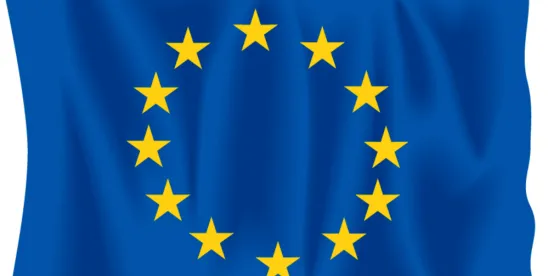On December 4, 2024, EU Regulation 2024/2987 (“EMIR 3”), amending EU Regulation 648/2012 on the European Market Infrastructure (“EMIR”), was published in the EU Official Journal. EMIR 3 will enter into force on December 24, 2024, although certain provisions will remain subject to the Regulatory Technical Standards that will be published by the European Securities and Markets Commission (“ESMA”).
EMIR 3 introduces a requirement for certain EU counterparties to open and maintain an account with a central counterparty (“CCP”) established in the EU, and makes targeted amendments relating to the clearing thresholds and certain exemptions.
Origins of EMIR 3
EMIR 3 responds to the concerns raised by the European Commission and EU Member States about the fact that, despite Brexit, EU counterparties continue to clear their trades in CCPs established in the UK.
Initially, to incentivise EU counterparties to instead clear their trades in CCPs established in the EU, the European Commission intended to require all financial counterparties (“FC”) and non-financial counterparties (“NFC”) that are subject to the clearing obligation under EMIR to clear their trades in accounts held with CCPs established in the EU.
This proposal, however, drew considerable criticism from EU market associations, which argued that such a broad requirement would put EU counterparties at a competitive disadvantage compared to their UK or U.S. counterparties. As a result of these critiques, the final requirement has been significantly watered down, and will only apply to certain FCs and NFCs.
Active Account Requirement
EMIR 3 imposes a requirement to open and maintain an ‘active’ account with a CCP established in the EU on FCs and NFCs that are subject to the clearing obligation under EMIR and exceed the clearing threshold in any of the following derivatives: (i) interest rate derivatives denominated in EUR or PLN or (ii) short-term interest rate derivatives denominated in EUR ( “In-Scope Counterparties”). Contrary to the initial proposal, credit default swaps denominated in EUR have been excluded from the scope of this requirement.
In-Scope Counterparties that hold a clearing volume of at least EUR 6 billion in open positions will additionally be required to clear in their ‘active’ accounts at least 5 trades per class of derivatives during the relevant reference period. The details of this requirement will be further specified by ESMA.
Targeted Amendments
In connection with the ‘active’ account requirement, the European Commission introduced a number of targeted amendments to EMIR. These relate to, among other things, the calculation of the clearing thresholds and the exemptions from clearing, margin or reporting requirements.
Clearing Threshold Calculation
EMIR requires FCs and NFCs to clear their over-the-counter (“OTC”) derivatives if their average positions exceed certain clearing thresholds. For the purposes of calculating these thresholds, EMIR defined OTC derivatives as derivatives that are not traded on an EU regulated market or an equivalent non-EU trading venue.
This calculation mechanism has, however, proven to be problematic for the derivatives industry following Brexit as UK trading venues are no longer considered as EU-regulated markets and have not been, in the meantime, declared as equivalent to EU trading venues.
EMIR 3 responds to this issue by amending the definition of OTC derivatives, which shall now refer to derivatives not cleared in EU- or EU-equivalent CCPs, instead of those not traded on an EU trading venue (noting that the EU has already recognized UK CCPs as EU-equivalent).
Exemptions
In addition, EMIR 3 introduces a number of changes to the EMIR exemptions landscape:
- Clearing: EMIR 3 has extended the existing EU pension scheme exemption to also cover transactions with non-EU pension schemes that are authorised under national law and have been exempted from the clearing obligation under that law. In addition, EMIR 3 has introduced a new exemption from the clearing obligation relating to market neutral post-trade risk reduction transactions.
- Margin: EMIR 3 has permanently exempted uncleared single-stock options and equity index options from the requirement to exchange initial and variation margin.
- Reporting: EMIR 3 has narrowed the scope of the existing exemption from the reporting requirement for NFCs in relation to intra-group trades. The revised exemption no longer applies to so-called NFC+ (i.e., NFCs that are subject to the clearing obligation).




 />i
/>i
